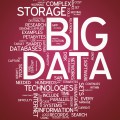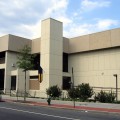 Are dedicated data analysts a dying breed? After all, many of the latest analytics solutions boast about how anyone, even non-specialists, can use their products to crunch data at ever-faster speeds.
Are dedicated data analysts a dying breed? After all, many of the latest analytics solutions boast about how anyone, even non-specialists, can use their products to crunch data at ever-faster speeds.
Companies such as Teradata Aster are promoting an analysis platform that requires no formal analytics training, and startups like Topo.ly promise to cut analysis time in half. Data solutions have become increasingly usable by any company manager. Will demand for specialized analysts drop as a result?
Jerry Oglesby, senior director at data education and solutions company SAS, thinks not. On the contrary, he believes data analysts have many rich years ahead of growing demand for their skills. In a March 19 interview with Forbes magazine, Oglesby pointed out that growing demand for sophisticated analysis in industries like biology or engineering will increase demand for skilled data scientists, especially those with specialties or hybrid experience.
Oglesby’s own specialty at SAS is academic and certification programs. He has worked with a number of schools, including North Carolina State University and Arizona State University, to develop analytics programs that train in-demand data scientists to meet businesses’ growing needs.
SAS’s work has also applied innovative data solution for schools themselves, such as a new data network for 275,000 students in community colleges, which analyzes student data and can spot individuals who are having difficulties. After seeking out struggling students, the program offers evidence-based reports to suggest ways to help a particular student succeed.
Such innovations are one reason that Oglesby remains confident in the face of ever-more-navigable data software. He believes that new projects will always require the expertise of analysts, and as Big Data and its associated business education programs develop, more and more positions for analysts will open up in all fields. Analysts will still have plenty to do, especially at the concept level, where they can take on the role of communicator and explain to other employees which data is important, how data can be used and the best ways to gather it.
To that end, analytics education is going through a period of change. In SAS’s long-term work with North Carolina State University‘s Institute for Advanced Analytics, for example, Oglesby said SAS emphasized the need for students to develop communication skills. The ability to convey their expertise as professionals in the field is invaluable. “They . . . can’t be just sitting in the back room crunching numbers, they need to be able to communicate with colleagues who don’t understand the analytics they are doing,” he said.
SAS expects especially strong growth in areas such as supply-chain operations and the potentially vast field of “unstructured data,” which includes examining social media and mobile activity to spot trends or uncover the impact of marketing campaigns.
[cf]skyword_tracking_tag[/cf]






No Comment